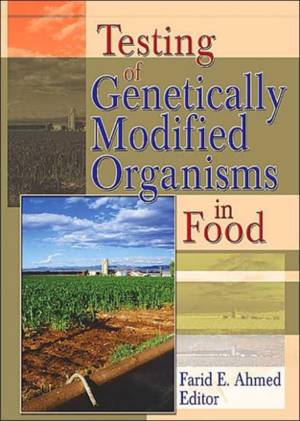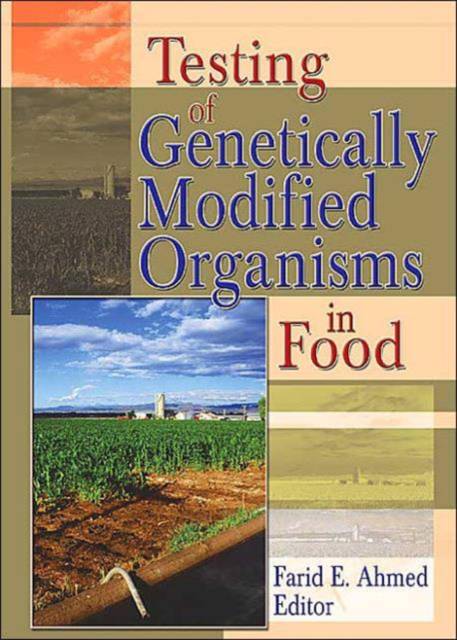
- Retrait gratuit dans votre magasin Club
- 7.000.000 titres dans notre catalogue
- Payer en toute sécurité
- Toujours un magasin près de chez vous
- Retrait gratuit dans votre magasin Club
- 7.000.000 titres dans notre catalogue
- Payer en toute sécurité
- Toujours un magasin près de chez vous
Testing of Genetically Modified Organisms in Foods
93,95 €
+ 187 points
Description
Examine several methods of testing for genetically modified organisms and the reasons behind their strict regulation!
Testing of Genetically Modified Organisms in Foods is the first study of the screening methods and tools utilized for determining the presence of genetically modified organisms (GMOs) in food products. Leading experts in science, medicine, and government agencies examine the significant research and clinical developments in bio-engineered agriculture to bring you an accurate risk assessment of GMOs in relation to human consumption, economics, and the environment. This book focuses on three high-profile biotechnological commercial aspects of GMO inclusion in the world market: insect resistance, herbicide tolerance, and virus resistance. It also identifies new GM food crops that are in the laboratory and may soon be on your table. Testing of Genetically Modified Organisms in Foods looks at GMOs from the perspectives of both sides of the globethe European Union and the United States Department of Agriculturewho each have their own set of rules and opinions regarding safety issues and marketing of bioengineered food products. This book looks at the government standards of scientific testing for GMOs, and several chapters specifically analyze current screening methods. This book also explores the impact of GMOs on farming, agricultural economy, pesticide control, and world famine. Testing of Genetically Modified Organisms in Foods brings you current information on:- the risks and benefits of agricultural biotechnologyto people and the environment
- the regulations and protocols of testing for GMOs that have been adopted by European and United States agencies
- scientific techniques that test for GMOs, including certified reference materials (CRMs) and matrix-based, protein-based, and DNA-based methods of testing
- the limitations of today's GMO screening methods and the benefits of alternatives that may be used in the future
- the long-term risks associated with gene flow of GMOs to other plants, specifically focusing on liabilities, regulatory climates, and intellectual property rights
Testing of Genetically Modified Organisms in Foods is generously enhanced with figures, tables, and graphs as well as references at the end of every chapter. The commercialization of agricultural biotechnology makes this text essential for scientists, planners, and students of food, agriculture and environmental science. Government officials and activists will find this book invaluable in debating current issues of agricultural biotechnology and food safety.
Spécifications
Parties prenantes
- Editeur:
Contenu
- Nombre de pages :
- 318
- Langue:
- Anglais
- Collection :
Caractéristiques
- EAN:
- 9781560222736
- Date de parution :
- 05-05-04
- Format:
- Livre relié
- Format numérique:
- Genaaid
- Dimensions :
- 155 mm x 225 mm
- Poids :
- 1002 g






